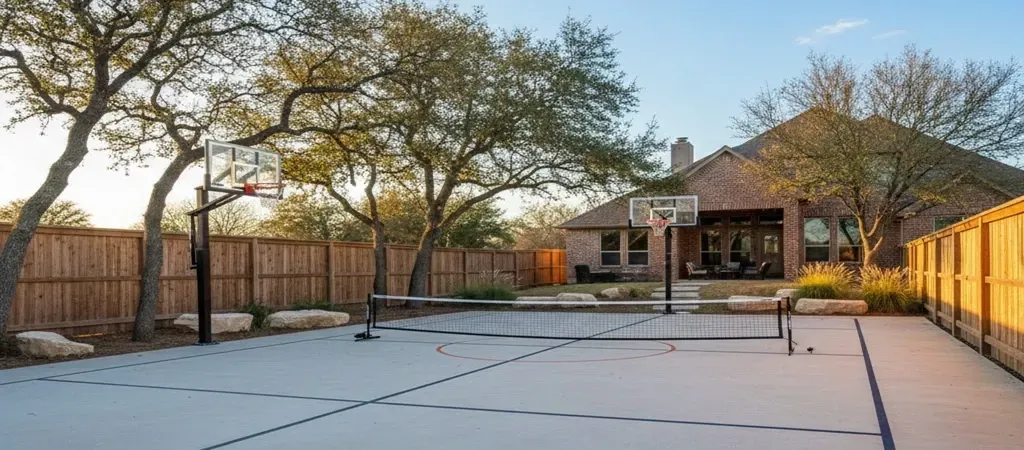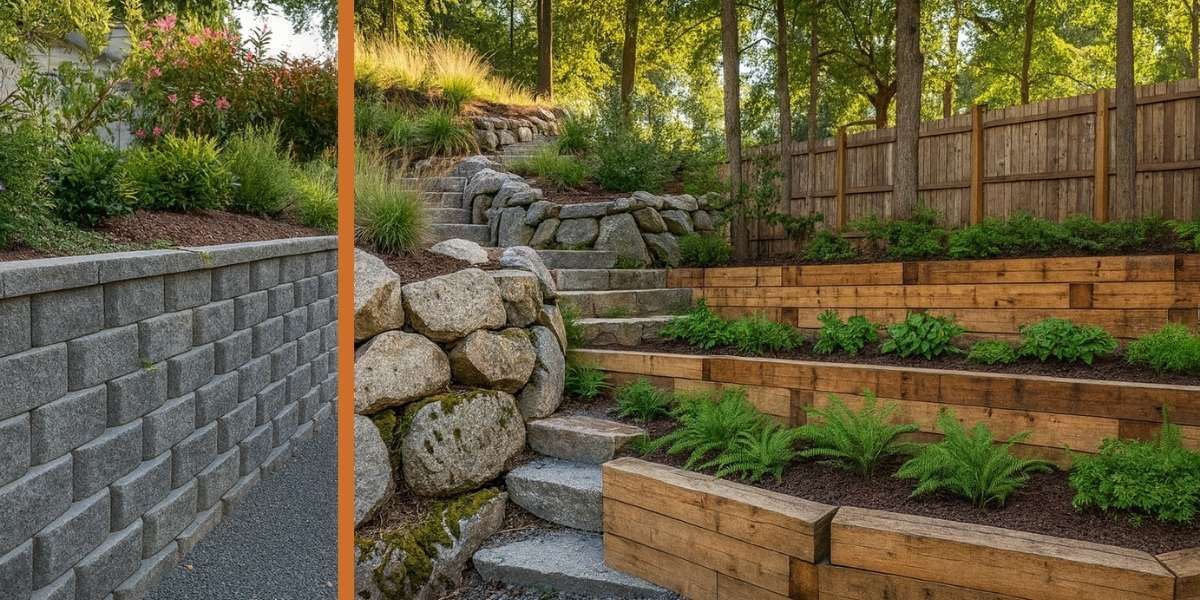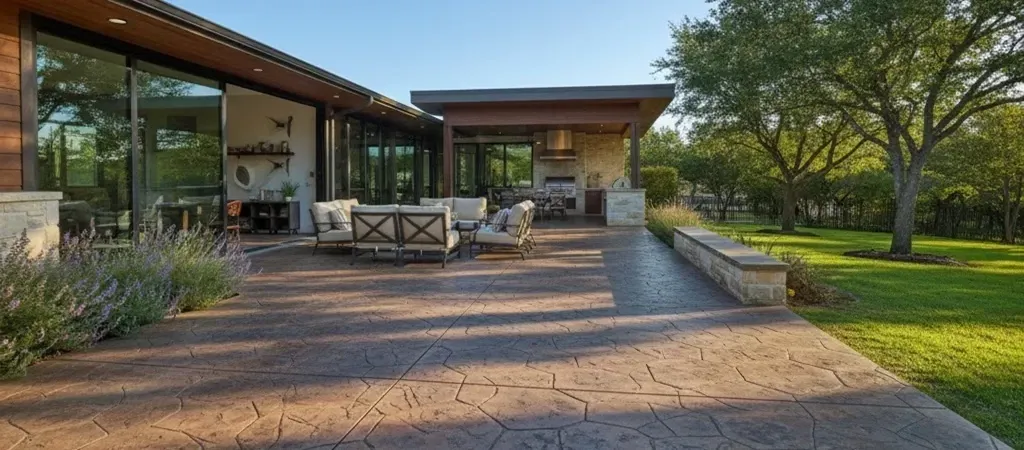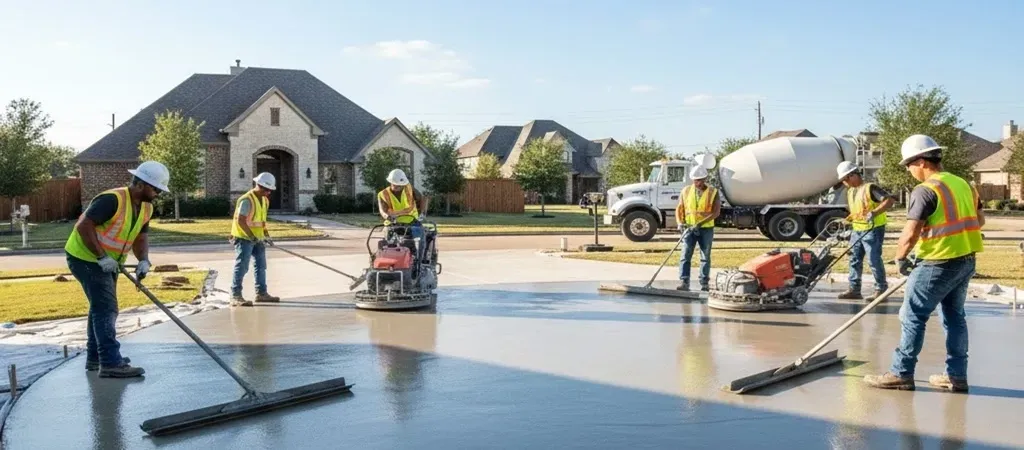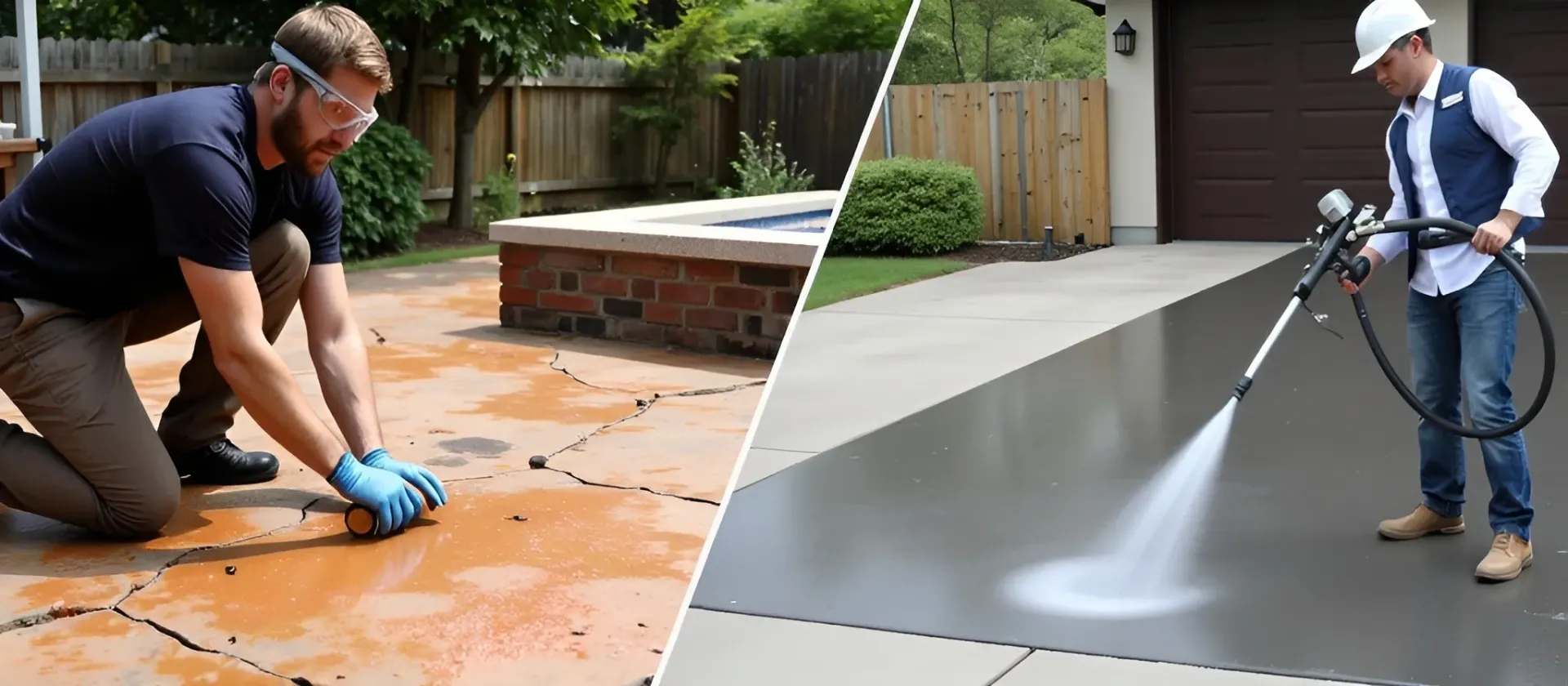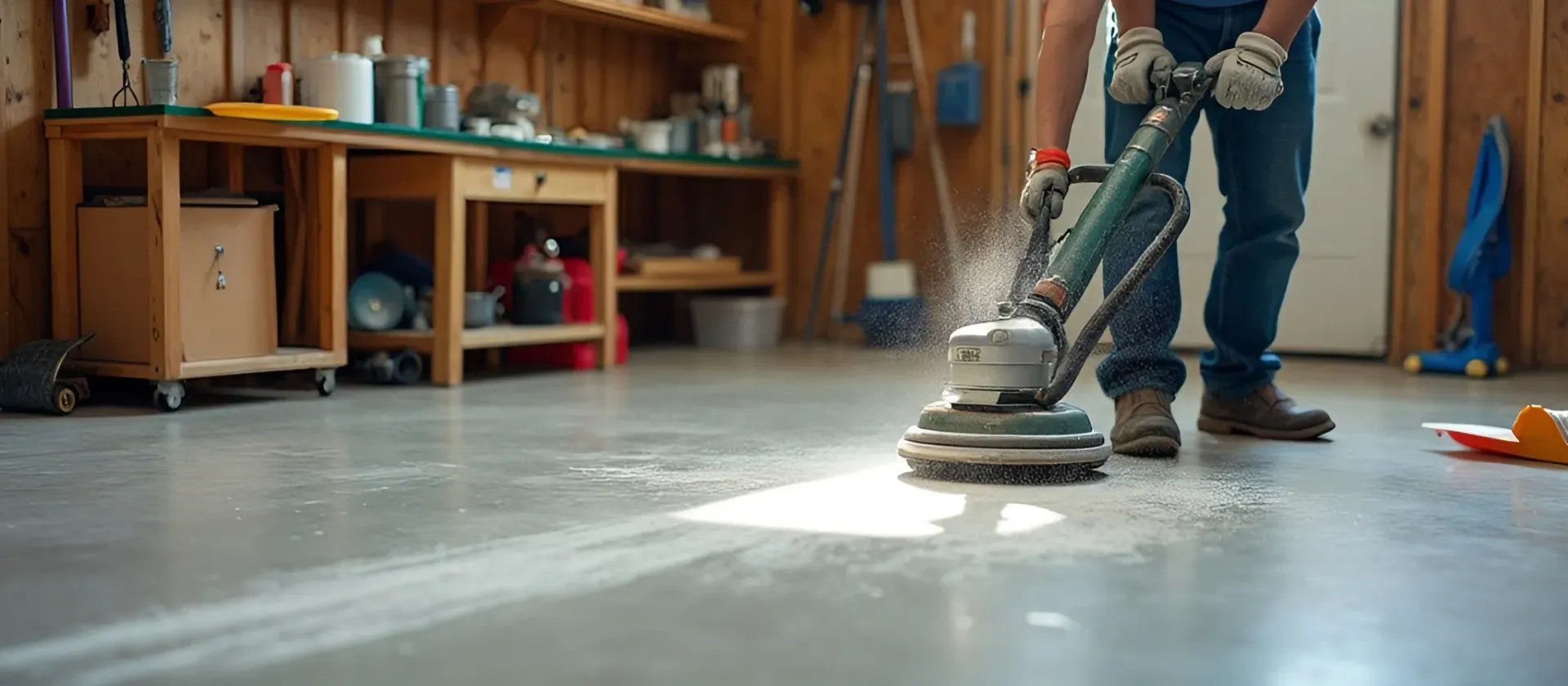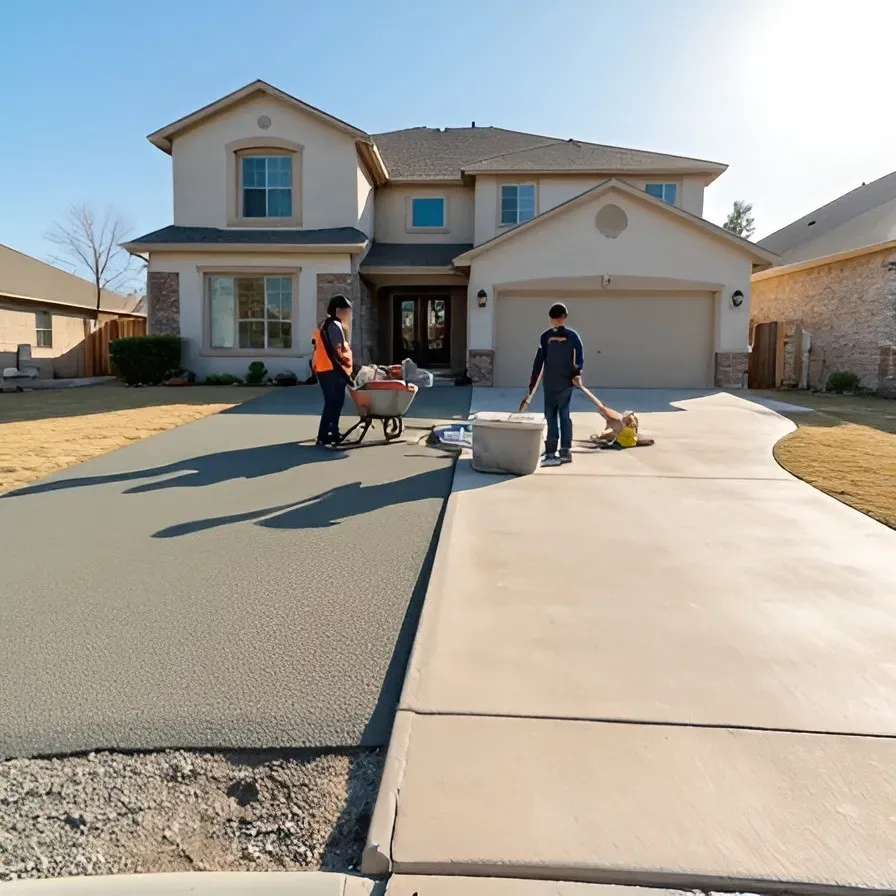
You’ve got a shovel in one hand and a YouTube tutorial paused on your phone. The plan is to pour your own concrete this weekend. You figure, how hard can it be? It’s just mixing, pouring, and smoothing… right?
Not exactly.
Whether you’re planning a new patio, a driveway expansion, or something else, deciding between doing it yourself or hiring a professional is more complicated than it looks. Especially in a place like Fort Worth, the soil shifts like a mood swing, and the weather bakes everything solid by noon.
Here’s what you should know before you start mixing concrete in your backyard.
The Fort Worth Factor
Before we even get into skill levels and budgets, let’s talk about Fort Worth. This city isn’t exactly gentle on concrete.
The soil in this region is mostly expansive clay. That means it swells when it gets wet and shrinks when it dries. This is not ideal for concrete as it could shift, crack, or even break apart the slabs.
Then there’s the climate. Fort Worth has hot summers that can affect curing times if you’re not familiar with the process. Winters may be short, but freezes happen. If concrete isn’t finished or sealed properly, water can seep in, freeze, and cause more damage.
In short, Fort Worth adds a layer of complexity that can turn a DIY job into a cracked, uneven mess if you’re not careful.
DIY: The Pros and Cons
If you have the tools, the time, and the stamina, DIY has its perks. For smaller projects like garden pavers or maybe a mailbox base, DIY can make sense. You save on labor, work on your schedule, and get that satisfying “I built this” feeling.
But it’s not that simple.
Concrete is not forgiving. If you get the mix ratio wrong (too much or too little water), you’re setting yourself up for a slab that might crumble, crack, or just look plain awful.
Similarly, timing is everything. If you wait too long to smooth it out, it will harden with bumps. But if you start too early, you’ll mess up the surface. Then there’s the weather. On hot days, it could dry too fast and leave you with surface cracks before it even cures.
Lastly, there are tools. A basic job requires rebar cutters, screeds, bull floats, edgers, and, if it’s a large job, a mixer, and even a concrete saw. Renting all that could be expensive.
When DIY Might Make Sense
Not all concrete projects need a crew of pros. If you’re pouring a few stepping stones, a small pad for a grill, or a short garden walkway, DIY can be a great learning experience. The margin for error is wider, and the consequences of messing up are a lot smaller.
It also helps if you’ve got prior experience or someone to guide you, especially someone who’s worked with concrete before. But if you’re attempting a major project, especially one that needs to support weight or be perfectly level, it’s worth thinking twice.
The Professional Advantage
Hiring a concrete contractor provides two things: experience and precision. A dedicated professional knows how to prepare Fort Worth’s unpredictable soil. They also understand local permitting and building codes.
Not only that, but they also know how to pour in the heat without ruining the finish. And they’ve got the right tools and crew to get the job done fast and cleanly.
Yes, it costs more upfront. But that cost includes expertise, liability insurance, and a warranty. If something cracks, settles wrong, or fails inspection, it’s not your headache to fix.
When Should You Hire a Pro?
Anything structural or requiring inspection is better left to professionals. This includes driveways, home foundations, retaining walls, or anything decorative. The risk of doing it wrong is simply too high, and the costs of fixing those mistakes are rarely cheap. Therefore, bringing in a pro becomes essential in that case.
The Real Costs
At first glance, DIY seems like a budget-friendly option. Let’s say you are tackling a patio. You purchase concrete, rent tools, and your budget still looks better than hiring a professional. But if you mess up and have to rip it out, that budget-friendly patio can quickly become a money pit.
If you hire a professional, you pay a large upfront cost but save a lot of time. A crew shows up with everything they need, does it right the first time, and leaves you with something that’s going to last a long time.
Therefore, sometimes the “cheaper” route ends up costing more in the long run.
How to Decide?
Ask yourself the following questions:
- Is this a critical structure? If yes, then driveways, foundations, and garage floors deserve professional hands.
- Do I have the time and physical capacity? If not, then remember that concrete doesn't wait for anyone once it starts setting.
- Am I comfortable troubleshooting while pouring? Because problems are inevitable.
Final Thoughts
It’s tempting to take the DIY route, especially when you learn about the very high contractor quotes. In some cases, it’s a solid move. But in Fort Worth, where the ground doesn’t sit still and the sun tries to cook everything in sight, concrete isn’t something to take lightly.
So whether you’re going full DIY, hiring a crew, or landing somewhere in between, just know this: concrete is permanent. Your decision should be too.
